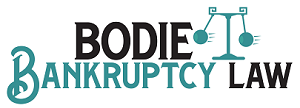You are a small business owner with your fair share of bad debts. You want them off the books as quickly as possible, so you are entertaining the idea of sending them to collection. Think long and hard about the implications of that. Furthermore, ask yourself the following question: should I sell my debts or assign them on contingency?
The two models could not be more different. When you sell your debts to a collection agency, you are turning ownership of those debts over to the buyer. You no longer have a say in how much is collected or how collection efforts are pursued.
On the other hand, assigning the debts on contingency does not change their ownership status. You still own the debts and the right to collect. Assigning on contingency means granting a collection agency the authority to collect on your behalf. Their payment for services is contingent upon successful collection.
Selling for Pennies on the Dollar
Judgment Collectors is a Salt Lake City, UT collection agency that specializes in judgments. They work on the contingency model rather than buying debts outright. They explain that the biggest downside to the purchase model is that collection agencies tend to pay only pennies on the dollar. Why?
Collection agencies need to cover their expenses. They also need to assume that some of the debts they buy will never be recovered. They must make enough money on the ones they successfully collect to support their business. And in order to do that, they cannot afford to pay a whole lot for the debts they buy.
Contingency Can Net More
Judgment Collectors also explains that assigning bad debts on contingency ultimately nets a company more. The collection agency assumes all the risk upon assignment. It also assumes all the collection expenses moving forward. If the agency succeeds, it charges a fee based on a percentage of the amount collected.
This arrangement is motivation to both collect and maximize the collection amount. The more the agency collects, the more it gets paid. Under the right conditions, assigning bad debts on contingency can make a sizable monetary difference to the creditor.
Some Debts Aren’t Recoverable
Regardless of the collection model you might be interested in, it is important to understand that some debts just are not recoverable. A collection agency that buys bad debts is not going to make a move on a debt it believes it cannot recover. There is no point in spending that money.
Likewise, an agency like Judgment Collectors does not want to put in a ton of work for which it might never be paid. So if they deem a debt unrecoverable, they won’t go near it. The creditor will either need to walk away or continue trying to collect it in-house.
Choosing the Right Course of Action
It should be clear that both collection models have their pros and cons. A creditor must decide what is most important in order to choose the right course of action. As a small business owner, what would your top priority be? If it is simply to be rid of the bad debt as quickly as possible, there’s no quicker way than selling the debt to a collection agency.
On the other hand, if you are willing to put in the time in order to gain a potentially higher return, the contingency model is probably the better choice. You are likely to be rewarded for waiting with a higher collection amount. At least that is the way it goes most of the time. Just remember there are no guarantees either way.

